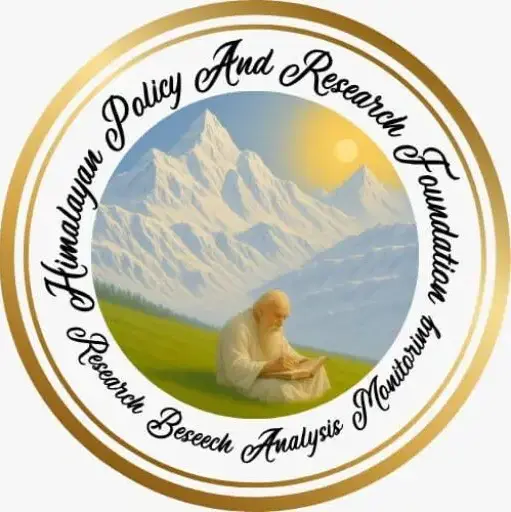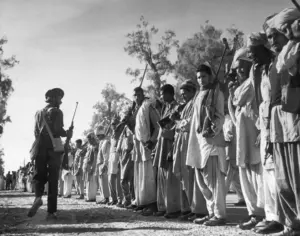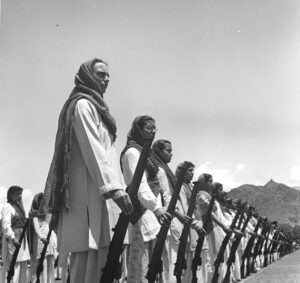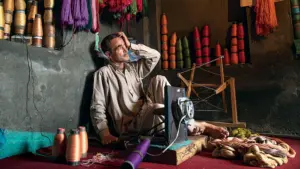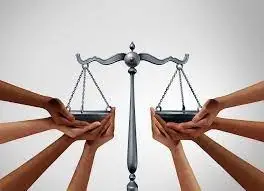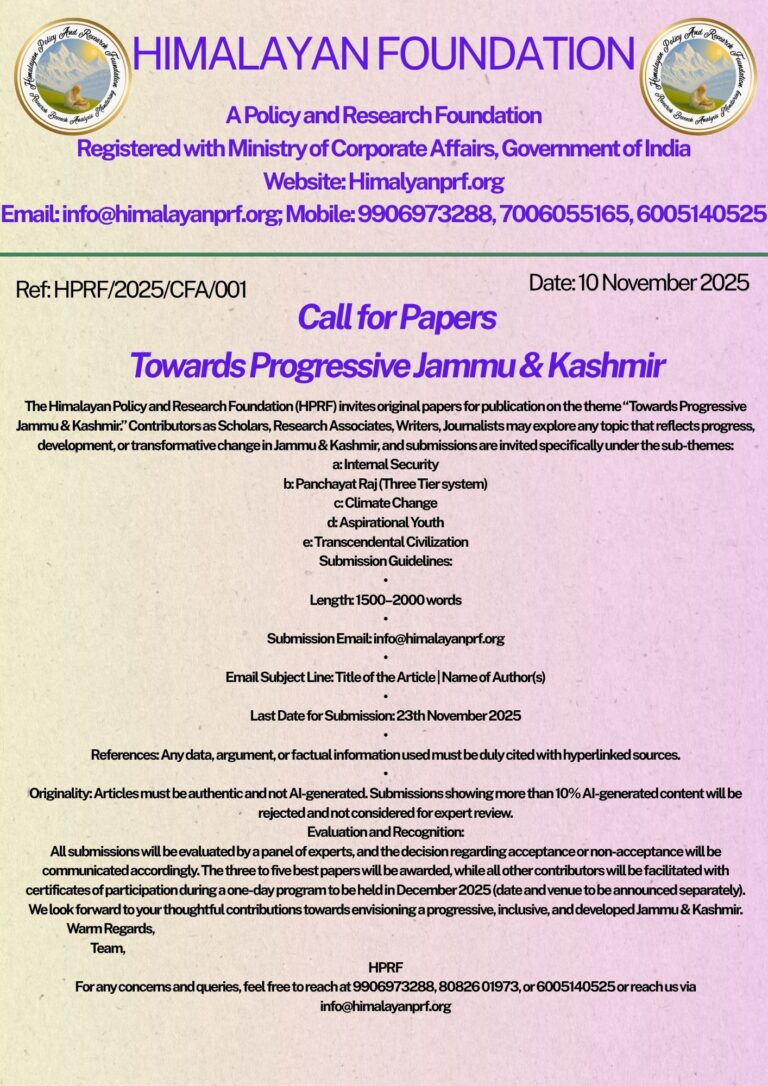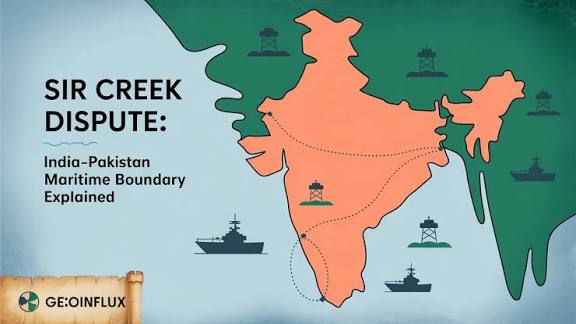Peerzada Muneer
Violence has been a persistent and unfortunate constant in the historical development of human civilization. From the earliest tribal skirmishes over territory to complex geopolitical conflicts, wars of religion, revolutions, and modern-day extremism, violence has often been used as a means to assert control, express ideological dominance, or ensure survival. These various manifestations of violence—driven by ideological fervour, political ambition, economic interest, or basic fear—highlight the challenges of coexisting peacefully in a world marked by diversity. Amid such challenges, the principle of tolerance emerges not as a passive virtue but as a transformative force essential for the creation of a just and equitable society.
The etymological root of the word “tolerance” lies in the Latin verb tolerare, meaning “to bear” or “to endure.” This origin carries significant philosophical and ethical implications. To tolerate, in this deeper sense, is not merely to “put up with” what is different or disagreeable, but to actively engage in cohabiting a shared social space with others whose values, behaviours, or beliefs may differ from one’s own. This act of endurance implies strength, resilience, and above all, a willingness to transcend personal biases in favour of peaceful coexistence. Therefore, tolerance is not about indifference or weakness—it is about maturity, empathy, and the capacity to accommodate plurality.
Throughout history, various kinds of violence have emerged in response to these pluralities. Whether it was the Crusades in medieval Europe, colonial invasions across Asia, Africa, and the Americas, or more recent manifestations of racial, religious, and ideological violence, the recurring pattern is clear: when societies fail to embrace tolerance, injustice and destruction follow. During the colonial period, for instance, the denial of indigenous cultural identities and religious beliefs under the guise of civilizing missions reflected an absence of tolerance, leading to systematic oppression. Even today, despite progress in the fields of human rights and democracy, society continues to witness bigotry, hate crimes, religious intolerance, xenophobia, and gender-based violence.
One of the complicating factors in discussions around violence and tolerance is religion. Religious texts often contain both calls for peace and prescriptions for conflict. Sacred scriptures across traditions—be they the Quran, the Bible, the Torah, the Vedas, or others—have been interpreted in divergent ways throughout history. While all major religions emphasize compassion, love, and the sanctity of life, certain interpretations have been used to justify exclusion, discrimination, or even violence against perceived outsiders or heretics. The diversity of interpretations shows that religion is not inherently violent or tolerant—it is the lens through which it is read, the socio-political context in which it operates, and the intentions of its followers that shape its real-world impact.
In the contemporary world, tolerance functions not only as a personal value but also as a critical element of legal and institutional structures. Democratic societies, through constitutional frameworks, attempt to uphold the rights of individuals and groups to think, believe, and live freely, while balancing these rights with the collective good. Legal systems often mediate complex debates about the limits of tolerance. For instance, where should one draw the line between free speech and hate speech? Should religious customs be accommodated if they infringe on gender equality or individual rights? These questions are not abstract—they play out in legislatures, courtrooms, and media debates every day.
Modern legal interpretations of tolerance rest on a foundation of human rights. Laws protecting minority groups, affirming the rights of LGBTQ+ individuals, advocating for racial equality, or prohibiting discrimination on the basis of religion, caste, or ethnicity are all legal expressions of societal commitments to tolerance. But legal provisions alone cannot guarantee social cohesion. They must be accompanied by efforts to cultivate a culture of respect, empathy, and understanding. Otherwise, the law becomes a blunt instrument—necessary, but not sufficient.
Philosophical inquiry into tolerance has a rich lineage. Enlightenment thinkers like John Locke and Voltaire articulated the value of religious tolerance as a response to the wars of religion that had ravaged Europe. Locke’s Letter Concerning Toleration emphasized that the coercion of conscience by the state was both morally wrong and socially destructive. Voltaire famously championed free speech as a bulwark against tyranny and dogmatism. Later, John Stuart Mill’s On Liberty advanced the argument that society progresses only when individuals are allowed to express dissenting opinions and live according to their own values, provided they do not harm others.
In the 20th and 21st centuries, philosophers like Martha Nussbaum and Amartya Sen have expanded the scope of tolerance by linking it to capabilities, justice, and human flourishing. Nussbaum’s capabilities approach, for instance, insists that a just society must ensure that every individual has the opportunity to develop their full potential. Tolerance here is not simply about coexisting but actively ensuring that structural inequalities and cultural biases do not prevent individuals from participating equally in society.
Tolerance, then, is not merely a passive stance; it is a conscious and active moral choice. It entails the cultivation of virtues such as humility, empathy, and respect for others. A tolerant person is not someone who is indifferent to injustice or who refuses to engage in difficult conversations. Rather, a truly tolerant individual seeks to understand, to bridge gaps, and to resist the impulse to stereotype or scapegoat. At the societal level, tolerance creates the conditions for dialogue, reconciliation, and collaborative problem-solving—conditions without which democracy and peace cannot flourish.
However, the road to building tolerant societies is fraught with challenges. Cultural hegemony—the dominance of one culture over others—often stifles pluralism and suppresses minority voices. Political extremism, whether in the form of religious fundamentalism or authoritarian nationalism, thrives on fear and division, painting diversity as a threat rather than a strength. Economic inequality, too, plays a role in fuelling intolerance. Marginalized communities, when denied equal access to resources, opportunities, and representation, may become both victims and agents of radicalization and resentment.
To better understand these challenges, it’s useful to distinguish between tolerance as restraint and tolerance as respect. The former refers to a minimalistic approach: refraining from open hostility while harboring inner prejudices. Such tolerance, though useful in reducing overt conflict, lacks the transformative power needed to create lasting peace and justice. Tolerance as respect, by contrast, involves a deeper acknowledgment of the intrinsic worth of every human being. It is an active form of tolerance that calls not only for acceptance but for the affirmation of diversity.
Promoting this deeper form of tolerance requires comprehensive and long-term strategies. Education is one of the most powerful tools in this regard. Schools and universities must go beyond teaching facts—they must instill values of empathy, critical thinking, and global citizenship. Curricula should include discussions on human rights, social justice, and intercultural understanding. Teachers should be trained to create inclusive classrooms where diversity is celebrated, not merely tolerated.
Equally important are policies and programs that address structural inequalities. Legal protections for minorities, affirmative action in education and employment, and inclusive urban planning are all necessary steps toward equitable societies. Media also plays a crucial role in shaping perceptions. Ethical journalism, diverse representation in popular culture, and public broadcasting that educates and informs can counter harmful stereotypes and build empathy across communities.
Historical examples offer powerful lessons in how tolerance can function as a foundation for social flourishing. During the Islamic Golden Age, scholars from different faiths—Muslims, Christians, Jews, and Zoroastrians—collaborated in centres of learning such as Baghdad’s House of Wisdom, translating texts, exchanging ideas, and making landmark contributions to science and philosophy. Similarly, parts of medieval Spain saw relative religious harmony under Muslim rule, where Jews, Christians, and Muslims coexisted and enriched cultural life. India, with its deeply pluralistic ethos, has for centuries been home to a mosaic of languages, faiths, and customs that coalesce into a vibrant yet challenging coexistence.
These examples demonstrate that tolerance is not merely a moral imperative—it is a practical necessity for intellectual, artistic, and social development. Societies that embrace diversity tend to be more innovative, resilient, and prosperous.
The connection between tolerance and social justice becomes particularly apparent when we examine how inclusive societies function. Social justice demands the fair distribution of resources, opportunities, and rights. It rejects discrimination and oppression in all forms. Tolerance supports these aims by ensuring that all groups—regardless of religion, ethnicity, gender, sexuality, or ideology—are afforded dignity and respect. In this way, tolerance serves as a precondition for justice.
Promoting tolerance within the framework of social justice also requires acknowledging and correcting past injustices. This includes recognizing the historical marginalization of indigenous peoples, the legacy of slavery and caste discrimination, and the systemic exclusion faced by women and sexual minorities. Only by confronting such histories can we begin to build societies based on truth, reconciliation, and genuine inclusion.
One of the major challenges, however, is the temptation toward complacency. Passive tolerance—avoiding conflict by ignoring injustice—can lead to stagnation and resentment. Real change requires proactive efforts: challenging discriminatory policies, reforming unjust institutions, and standing in solidarity with marginalized communities. Cultural relativism, too, presents a complex dilemma. While respecting cultural practices is part of tolerance, this respect must not come at the cost of universal human rights. Practices that perpetuate gender inequality, child marriage, or caste violence, for instance, cannot be justified in the name of cultural tolerance.
Despite these difficulties, the future holds promise. The global youth, increasingly interconnected through technology and social media, are more exposed to diversity than any previous generation. They are also more likely to mobilize for causes related to climate justice, racial equality, gender rights, and refugee protection—each of which intersects with the principle of tolerance.
Civil society organizations, grassroots movements, and global institutions all have roles to play. By encouraging intercultural dialogue, investing in equitable development, and supporting inclusive leadership, these actors can help build bridges across divides. Governments, too, must enact policies that prioritize participation, transparency, and equal opportunity. Multilateral cooperation on issues such as migration, climate change, and global health can serve as platforms for building solidarity beyond borders.
Tolerance and social justice are not separate ideals—they are deeply intertwined. Tolerance, when practiced in its truest form, lays the foundation for societies built on equality, dignity, and peaceful coexistence. It is the bedrock upon which the edifice of social justice can be raised. Yet, tolerance alone cannot suffice; it must be accompanied by deliberate, sustained efforts to dismantle systemic injustice, confront inherited and evolving prejudices, and construct inclusive structures that affirm every individual’s inherent worth. As Robert Green rightly stated, “Tolerance is giving every other human being every right you claim for yourself.” This ethos calls for a recognition not just of others’ existence, but of their full humanity and entitlement to the same rights, freedoms, and protections we reserve for ourselves. In embracing both tolerance and social justice—not as passive ideals but as active commitments—humanity moves closer to realizing a world that is not only more peaceful, but also genuinely just, equitable, and united in its shared, vibrant diversity.
” Tolerance is giving every other human being every that
right you claim for yourself ” ( Robert Green )
